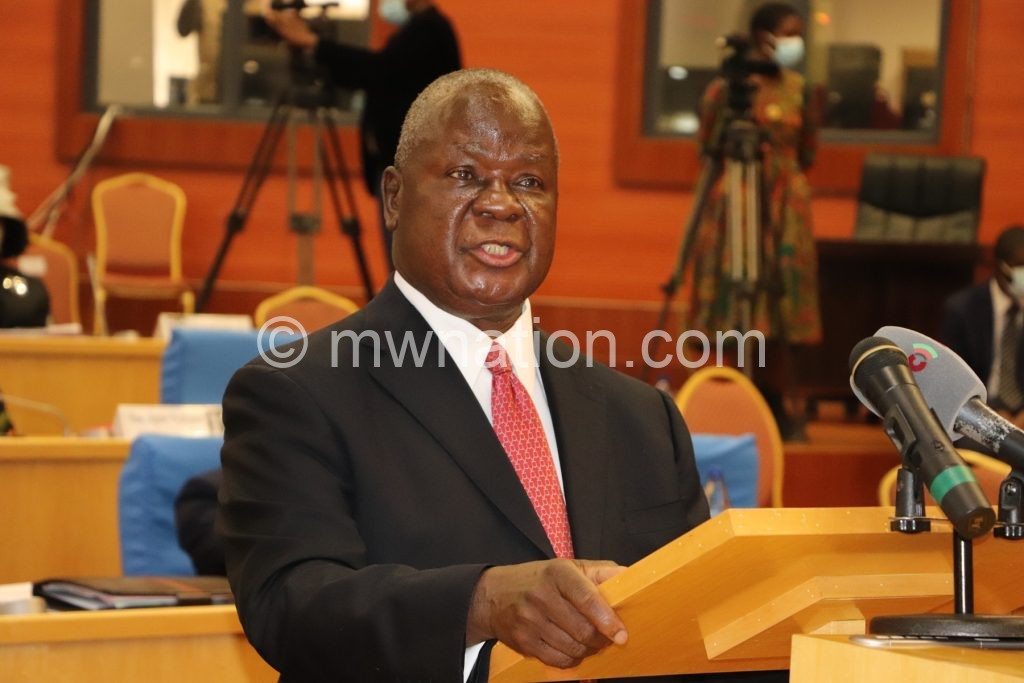Icam outlines budget risks
The Institute of Chartered Accountants in Malawi (Icam) says rising energy prices, public debt and further weakening of the kwacha pose challenges to the implementation of the 2021/22 fiscal plan.
Icam’s sentiments follow preliminary indications that this year’s nine-month budget, which runs from July 2021 to March 2022, could miss its assumptions on gross domestic product (GDP), inflation and exchange rate and domestic revenue.

In a written response on Monday, Icam chief executive officer Francis Chinjoka Gondwe observed that in the short to medium-term, it is unlikely that the kwacha will appreciate because there are no likely means that would help build the country’s foreign exchange reserves.
He said this would also be compounded by the need to import fertiliser for the multi-billion kwacha Affordable Inputs Programme (AIP), which will further deplete forex reserves.
Chinjoka Gondwe fears rising energy prices will likely lead to an increase in inflation rate and subsequent increase in the cost of living and doing business, which could increase the cost of acquiring goods and services.
He said: “Any significant change in the budget assumption will have challenges with budget implementation. Significant depreciation of the exchange rate has potential to wipe out import cover, thereby affecting imports.
“Since most of the country’s hospital essential drugs are from imports, it is likely that the health budget will be impacted resulting in fewer drugs than budgeted for.”
Gondwe said Covid-19 has reduced productivity in various sectors, with tourism being the worst hit due to travel restrictions.
He said the short-term solution to this is for the government to continue empowering citizens through access to loans and small and medium enterprises preference in government procurements.
The 2021/22 National Budget presented by Minister of Finance Felix Mlusu in May was developed using Treasury’s projections of a real GPD of 3.8 percent in 2021 and 5.4 percent in 2022; average inflation rate of 7.4 percent during the fiscal year; a stable exchange rate of about K780 to the dollar; a policy rate of 12.05 percent and tax refunds at three percent of total tax revenue collection.
However, four months late, most of the projections seem to be missing their targets.
At 3.8 percent GDP, Treasury’s projection is more than that projected by the International Monetary Fund (IMF) at 2.2 percent, World Bank at 2.8 percent and Economist Intelligence Unit at 2.7 percent.
Again, at 7.4 percent, the inflation rate projection is above Reserve Bank of Malawi (RBM)’s 8.8 percent and IMF’s 9.5 percent.
Inflation rate as of September 2021 is at 8.9 percent, according to the National Statistical Office (NSO).
On the other hand, the local unit has been under pressure, depreciating against the dollar from K770.84 in December 2020 to K815.5 in September 2021.
Meanwhile, global oil prices are projected to rise in 2022 after surging by more than 80 percent in 2021, a situation the World Bank said poses major risks to inflation in developing countries in the near-term.
The energy market developments have already taken a toll on fertiliser markets this year, with the World Bank projecting prices will increase by almost 60 percent in 2021 followed by a further six percent increase in 2022.
Already, the AIP alone has a budget of more than K160 billion, representing 45 percent of the total agriculture sector budget and seven percent of the 2020/21 fiscal plan.
IM Swedish Development Partner regional director for Southern Africa Dalitso Kubalasa said in an interview on Tuesday that the developments are posing “a serious threat to the fiscal policy objectives set”.
“There is need for comprehensive fiscal risk statements articulating how government will effectively help reduce economic exposure,” he said.
Ministry of Finance spokesperson Williams Banda said they are banking on Covid-19 vaccine, export diversification and a broad tax base for the successful implementation of the budget.





